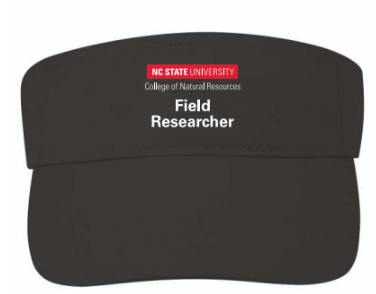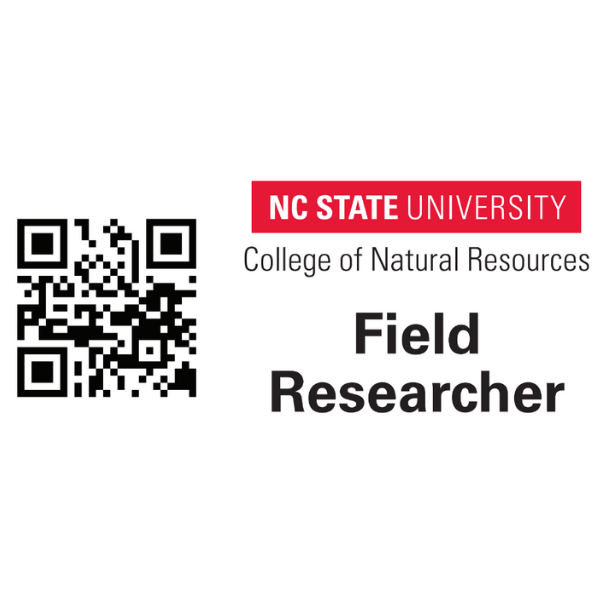CNR Field Equipment
For Researchers and Students Working in the Outdoors
About
Hands-on, in-the-field experiences are core to the education of students in the College of Natural Resources. For many of our undergraduate and graduate students, this experience includes conducting fieldwork and research outdoors in our natural environments, often in remote areas. While hard hats, safety vests, and protective gear are provided to keep our students physically safe, many students, particularly those from underrepresented and marginalized groups, often require identification affiliating them with the university to further ensure safety.
When individuals from race/ethnicity, sexual orientation, disability, gender identity and/or religious minorities enter unfamiliar communities in the course of fieldwork, they may be placed in an uncomfortable and potentially unsafe ‘othered’ position and prejudice may manifest against them. Identification equipment specific to NC State and the College of Natural Resources increases safety and decreases harassment.
This initiative was an NC State crowdfunding project created by several students to support the College of Natural Resources. Murry Burgess and Lauren D. Pharr, who helped lead this initiative, also founded the non-profit Field Inclusive, Inc, which strives to provide actionable improvements in the natural resources industry by addressing social field safety issues related to justice, equity, diversity and inclusion.
Equipment Available
Identification Equipment is free to use among faculty, staff, and students of CNR who conduct or help with research outdoors. Items such as personal ID badges, visors, and shirts are free to be kept. Items such as car magnets and vests will be on a check-in/out basis.
Requests
- To check out car magnets and vests, please contact the CNR equipment room.
- To request a personalized field work ID badge, shirts, or visors, please complete this form.
Additional Resources
- Field Inclusive, Inc.
- Overview: Field Inclusive is a non-profit that supports marginalized and historically excluded biologists and researchers. The website discusses what the organization does and how to get involved and highlights its resources, education, research, and community support. They also have a gear closet that donates equipment to those in need.
- Safe fieldwork strategies for at-risk individuals, their supervisors and institutions
- Abstract: Everyone deserves to conduct fieldwork as safely as possible; yet not all fieldworkers face the same risks going into the field. At-risk individuals include minority identities of the following: race/ethnicity, sexual orientation, disability, gender identity and/or religion. When individuals from these backgrounds enter unfamiliar communities in the course of fieldwork, they may be placed in an uncomfortable and potentially unsafe ‘othered’ position, and prejudice may manifest against them. Both immediately and over the long term, prejudice-driven conflict can threaten a researcher’s physical health and safety, up to and including their life. Additionally, such situations impact mental health, productivity and professional development.
- The ecological and evolutionary consequences of systemic racism in urban environments
- Abstract: Cities create challenging environments for many nonhuman species, and the presence of nonhumans in cities influences the health and well-being of the humans with which they share the environment. Distinct urban conditions are created by landscape modification, but the history of this transformation is not equal across urban environments. Schell et al. review how systematic racist practices such as residential segregation, enacted in part through redlining, have led to an unequal distribution of “nature” within cities. These inequities continue to play out in both the ecological processes of cities and the welfare of their residents.
Contact Us
Lauren D. Pharr, PhD Student
lpharr@ncsu.edu
Dr. Stacy Nelson, Associate Dean for Diversity and Inclusion
sanelso2@ncsu.edu
Dr. Erin Sills, Department Head
sills@ncsu.edu
Mailing Address
College of Natural Resources
Biltmore Hall, Room 2022B
Campus Box 8001
Raleigh, NC 27695-8001


